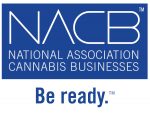Editor’s Note: This is an article submission from the EAS Consulting Group, LLC team.
To Audit, or not to audit? Not even a question! Audits play a crucial role in verifying and validating business practices, ensuring suppliers are meeting their requirements for Good Manufacturing Practices (GMPs), and most importantly, protecting your interests by ensuring that you consistently receive a compliant and quality product. Audits can help ensure sound business procedures and quality systems, including well-established SOPs, verification and documentation of batch records, appropriate sanitation practices and safe storage and use of ingredients. Audits can also identify deficiencies, putting into motion a corrective action plan to mitigate any further challenges. While a detailed audit scheme is commonplace for established industries such as food, pharmaceuticals and dietary supplements, it is equally important for the cannabis industry to ensure the same quality and safety measures are applied to this budding industry.
If the question then is not whether to audit, perhaps the question is how and when to audit, particularly in the case of a company’s suppliers.This is an opportunity to strengthen the working relationship with each side demonstrating a commitment to the end product.
Supplier audits ensure first and foremost that the company with which you have chosen to work is operating in a manner that meets or exceeds your quality expectations – and you should have expectations because ultimately your product is your responsibility. Any issues that arise, even if they are technically the fault of a supplier, become your issue, meaning any enforcement action taken by your state regulators will directly impact your business. Yes, your supplier may provide you with a batch Certificate of Analysis but you should certify their results as well.
Audits are a snapshot of a moment in time and therefore should be conducted on a regular basis, perhaps biennially or even annually, if they are a critical supplier. In some cases, companies choose to bring in third-party auditors to provide an objective assessment of suppliers. This is especially helpful when the manufacturer or customer does not have the manufacturing, compliance and analytical background to accurately interpret data gathered as part of the audit. With the responsibility for ensuring ingredient identity and product integrity falling on the manufacturer, gaining an unbiased and accurate assessment is imperative to reducing the risk to your business.
 Conducting a supplier audit should be well planned in advance to ensure both sides are ready. The audit team must be prepared and able to perform their duties via a combination of education, training and experience. A lead auditor will oversee the team and ultimately will also oversee the results, verifying all nonconformities have been properly identified. They will also work with the supplier to conduct a root cause analysis for those nonconformities and develop a corrective action plan to eliminate them from occurring in the future. The audit lead will also verify follow-up results.
Conducting a supplier audit should be well planned in advance to ensure both sides are ready. The audit team must be prepared and able to perform their duties via a combination of education, training and experience. A lead auditor will oversee the team and ultimately will also oversee the results, verifying all nonconformities have been properly identified. They will also work with the supplier to conduct a root cause analysis for those nonconformities and develop a corrective action plan to eliminate them from occurring in the future. The audit lead will also verify follow-up results.
Auditors should discuss with the supplier in advance what areas will be observed, what documentation will need to be ready for review and they should conduct their assessments with professionalism. After all, this is an opportunity to strengthen the working relationship with each side demonstrating a commitment to the end product.This is your chance to ensure your suppliers are performing and will meet your business, quality and product expectations.
Auditors must document that ingredient identity and finished product specifications are verified by test methods appropriate for the intended purpose (such as a whole compound versus a powder). State regulations vary so be certain to understand the number and types of required tests. Once the audit is complete and results are analyzed, you, the manufacturer, have an opportunity to determine if the results are acceptable. Remember, it is your product, so ultimately it is your responsibility to review the available data and release the product to market, you cannot put that responsibility on your supplier.
Quality Agreements as Part of a Business Agreement
There are opportunities to strengthen a partnership at every turn, and one way to set a relationship on the right path is to include a quality agreement as part of a business agreement. A quality agreement lays out your expectations for your suppliers, what you are responsible for and is a living document that, once signed, demonstrates their commitment to upholding the standards you expect. Just as with a business agreement, have any quality agreements reviewed by an outside expert to ensure the wording is sound and that your interests are protected. This is just another step in the development of a well-executed business plan and one that solidifies expectations and provides consequences when those expectations are not met.
Supplier audits must be taken seriously as they are opportunities to protect your brand, your business and your consumers. Enter into an audit as you would with any business endeavor – prepared. This is your chance to ensure your suppliers are performing and will meet your business, quality and product expectations.




















